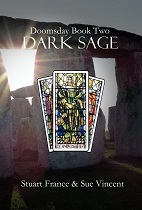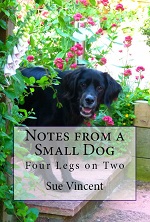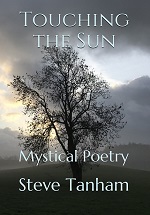
Let’s be fair, we all need a bit of help now and then. Especially writers. Whether it’s a word we seem to have forgotten how to spell… every time we use it too… the correct placing of punctuation or a point of grammar. There are, apparently, no excuses now that we all write online. Apart from that odd typo that inevitably creeps it… there is always the odd one of those, especially when fingers are racing to keep up with thoughts.
So, given all the tools at our disposal, how come so many of us still end up with errors in our work?
I don’t mean the ones our eyes and brains fail to pick up as we edit, the ones that slip through the cracks in attention as we read what is supposed to be there, rather than what actually makes it to the page. I mean the ones we think we have corrected, because the grammar police have told us we must or the various spellcheckers and editing software we have installed on our devices highlight the errors, leaving us with a multicoloured patchwork on he screen.
I have grown increasingly frustrated with both the software and the grammar police over the years. Do we really have to conform?

There are rules for punctuation. There is good reason for that… punctuation is designed to allow us to read what has been written the way the writer intended. It makes us pause when a pause is required, lets us know when a character is speaking and when they cease to speak. It separates ideas, and can radically alter the sense of a sentence.
There is a reason to conform here… at least to the basic rules that make sense of your writing.
On the other hand, and unless you are writing for publication in an arena where slavishly following the rules as set out in the style guides really matters, does it matter, as long as the true sense of your words is conveyed to the reader?
Some of the best and most successful books I have read over the years have had what can only be called idiosyncrasies where punctuation is concerned. And it has done them no harm. But, their punctuation is still logical, understandable and consistent. The reader soon picks up and runs with the quirks and foibles.
I have also read some pieces where the content is actually wonderful, but the punctuation is so slapdash, inconsistent and erratic that you struggle to follow the meaning and end up abandoning them in disgust.
Spelling, on the other hand, has to be right. Especially where homophones such as ‘their, there, they’re’ are concerned. Here too, you can dramatically alter the meaning of a phrase by getting it wrong.
It also needs to be consistent. It doesn’t really matter whether you are using American English or British English… as long as you stick with it all the way through what you are writing.
Being British, I like to use British English… yet almost all the software available defaults to American English. Even Word has to have its default proofing language reset periodically, no matter how many times you swear at it and tell it you want a ‘u’ in ‘colour’.

What often has me cursing at the screen, is the bossy nature of some of the best-known software.
The stuff that tells you that you have used the wrong word, phrase or punctuation when it doesn’t have the slightest understanding of what you are writing!
Editing software does not understand, for instance, poetic phrasing. Words are often reordered in a poem, they can be omitted to create an image, used in unusual ways…
Not so, says the software, suggesting changes that may make perfect sense to its algorithms but which make a mockery of your idea.
It does not understand humour or word play. Software does not have the subtlety of the human mind. It cannot understand how we use emotions or even fake emotions in our writing for effect. A rant, full of anger according to the software, can be highly amusing… and written in that vein deliberately. In the same way, you are not really dying of desire for that chocolate biscuit to which you have written an ode. Well, okay, maybe that last example is not altogether correct…
![]()
And don’t get me started on the emoticons that are now putting in an appearance, courtesy of the software. The ones that analyse everything you write, tell you how it sounds… and then ask you if they were anywhere near right!
Meanwhile, the software ‘suggests’ corrections. In red. So you can’t ignore them.
Were we all to accept all these corrections, not only would we end up with something we had not chosen to write, but our writing would be homogenised to the point where we would, inevitably, lose the one thing all writers work hard to find… our individual style… the writer’s voice.
Accept that the basic rules of grammar, spelling and punctuation are a necessity of clear communication, but don’t be a slave to the style guides. Half of them contradict each other anyway.
Check your work yourself… use the spellcheck to give you a nudge, but review its suggestions, don’t swallow them whole.
Find your own style… write with your own voice. Be authentically YOU. No computer, no software, no editing programme can ever replace the wonderful quirkiness that makes every writer unique.










































Thank you 💜💐🌹😌
LikeLiked by 1 person
Ah, a fellow sufferer 😉 x
LikeLiked by 1 person
Yes we both have a good sense of HUMOUR lol All red lines x
LikeLiked by 1 person
I deliberately typed this post into one of the editors… rainbow central 😉
LikeLike
Agree. Those editing programs drive me nuts!
LikeLiked by 1 person
Like all things,they can be useful as long as we remembrer they are supposed to be at our service, not in charge.
LikeLiked by 1 person
Pingback: Under pressure… — Sue Vincent’s Daily Echo – yazım'yazgısı (typography)
🙂 Sue, most modern spell checkers and grammar checkers have the option to change the default to British English.
As bloggers, we also have the option to ignore the suggestions that were made by such software (A small percentage of the suggestions are what I like to refer to as, “False positives”).
I genuinely believe that those types of software have the potential of affecting a writer’s personal style.
Native English speakers (especially those who were fortunate to acquire a secondary or tertiary education) should know how to proofread their own blog posts without the aid of spell checking and grammar checking software.
LikeLiked by 1 person
They do, Renard, although they have a habit of resetting themselves periodically.
The software available should be a useful tool to help make life easier. ..but unless we use them as such, we are at risk of losing individuality.
LikeLiked by 1 person
Hear, hear, Sue! Wonderfully put! 🙂 ❤
LikeLike
Thanks, Penny.
LikeLiked by 1 person
Wonderfully accurate post, Sue, but you didn’t mention the one that is gradually driving me insane. That persistent tampering with our words after we have moved on, changing words willy nilly to what they think they should be. I have to change the auto-correct settings in Word all the time, but it happens in other places too…
LikeLike
Oh don’t even go there, Jaye…that drives me nuts.
LikeLiked by 1 person
Nice to know I’m not the only one!
LikeLike
🙂
LikeLike
I can’t tell you enough about how software has helped me with my writing, Sue. Being dyslexic, I probably fail to see lots more errors in my work than somebody who does not have dyslexia. I agree that the software doesn’t always get it right, but I’m so thankful that it has helped me. It does make me stop and think about what it’s highlighting to me. Now, I feel a lot more confident about writing and pushing the ‘publish’ button.
I agree, though, that you shouldn’t change everything it suggests. I’ve had some weird suggestions from the software I use and am glad that I can say ‘no’ to it. It should never make you change your writing style or your voice in your writing.
LikeLike
That is eactly what software should be, Hugh…helpful. Not tyrannical. We do have a choice in how we use it and allow it to alter what we write…but should never feel bullied into changing anything we feel reflects our own style.
LikeLiked by 1 person
The voice of common-sense… Oh, yes! The pedants of the world are useful,in their way, but – especially when it comes to spontaneous poetry and some prose writing – please leave us alone! Rules are there to be massaged or even changed in certain situations, otherwise our writing would become robotic. Passive when younger (with a lamentable education) I found it a struggle to feel a worthy writer, and have now accepted that none of us are/is… perfect, although,. having gained my A level Lit pass, aged 66, I feel more comfortable when I write (which is like air to me…) I love learning new things every day and it keeps the older brain cells alert! Aren’t we lucky human beings…Thanks, Sue. xx
LikeLike
I agree, Joy. I am perfectly capable of writing a formal piece, properly punctuated and with due regard to spelling and grammar. I write poetry and poetic prose too. Most of the time, though, I write as I speak… informally…and the same rules do not apply across the board.
What really gets to me is that, although the software will question so many words and turns of phrase, it invariably misses the typos where cold fingers and a dodgy keyboard let me down 😉 xxx
LikeLike
Well said, Sue! It can be a constant battle with the software. The important thing is to read it all through properly before publishing. And there are some errors you can’t blame the software for. My favourite – once I’d stopped grinding my teeth after first reading it – was when an author had written that a character had ‘road’ their motorbike… It might have made more sense if they’d rowed it!
LikeLike
Oh dear…
We are all guilty of missing things… and typos happen for so many reasons (you’ve no idea how often I swear at the autocorrect on my phone…). But some errors should simply not be missed by a careful read…
LikeLike
Well said, Sue. And it’s not only the software that can take an over-zealous approach to what has been written. I’ve just finished tutoring on a writing course and one poor woman was in despair because people in her writing group always pointed out when she had used adverbs and adjectives they had decided were unnecessary. Yes, we are told not to use too many, especially in poetry, but this poor woman was almost paralysed with the fear of criticism even when she thought she had removed all offending adverbs. I hope I have reassured her sufficiently to accept it is not a concrete rule – such as correct use of their and there – and if she feels a word is right for her poem she can use it.
LikeLiked by 1 person
Adverbs are a good example. Their overuse doesn’t seem to have done J. K. Rowling any harm and yet every editing programme tells you to remove them. I can quite understand how that fear must have damaged her confidence, But what a waste of creativity! Even if it never reaches literary heights, poetry, especially, is such a wonderful way to express the inexpressible.
LikeLiked by 1 person
Exactly. I think I managed to boost her confidence a bit. Besides, why would adverbs have been invented we were not meant to use them?
LikeLike
Exactly!
LikeLiked by 1 person
I’ve never used writing software, except Word. I let my editor/s do the editing!
LikeLike
That’s fine for books… but not for everything we write 😉
LikeLike
Sue, I truly appreciate your advice on the following topic of grammar. I know I am so guilty when it comes to typing so fast ahead of my brain. Especially, in the comment sections. Typos Queen. I really need to double-check.
I second guess my work constantly and most times I’m reluctant on hitting publish. I can handle it… Please tell me if I hand in crap? and, where I could improve?
LikeLike
I am a writer myself and just as guilty, Beckie… I do not consider I have the right to pass judgement on the conent of any other writer’s mind and heart. And we all leave a trail of unseen typos behind us…me more than most. (My keyboard is probably full of crumbs… half the keys have a mind of their own 😉 )
LikeLiked by 1 person
You’re so sweet.
The other day my cursor decided to go bye-bye. This scared the crap out of me.
I really don’t know what I would do if I lost my laptop. I love writing and reading.
Since you posted the most recent Thursday Write Photo Prompt, my mind is swirling with ideas. I hope I neail something soon. LOL!
I apreciate you taking the time to answer my question… I really do. I am my own worse critic, and I literally give myself a hard time with everything I write. 🙄
LikeLike
Believe in what you write, Beckie, and let your imagination play…
If you write because you love writing, that is the best reason in the world 🙂
LikeLiked by 1 person
Thank you so very much, Sue. You’re the best! 💖
LikeLiked by 1 person
Reblogged this on Beckie's Mental Mess and commented:
REBLOG: Sue Vincent, of “Daily Echo”, shares her insight on grammar, punctuation, etc… In this wonderful post of advice.
LikeLiked by 1 person
I completely agree and I don’t use any of those programs , grammar, spellcheck or any thing , if red lines appear I ignore them! If I can’t spell a word I look it up. It probably shows in my work🥴. Mind you I do get caught out by predictive text, as I use my phone to blog.🌹💜
LikeLike
Predictive text is the worst!
I tend to run mine through a spellcheck… just because between my hands and my keyboard, not all the letters come out. I find that well wrth th few seconds it takes.
LikeLike
I may be should do that too 💜💜💜
LikeLike
I have been scolded by readers who catch my errors. It’s so frustrating when they slip through. I started using Grammarly again and don’t have to rely so heavily on Danny to catch my mistakes! It’s pretty thorough!
LikeLiked by 1 person
Now I really don’t like Grammarly. Largely because it doesn’t like the way I write 😉
LikeLike
I like Grammarly but it doesn’t go deeply enough. It misses a lot so I use it with others. Even my editor misses stuff.
LikeLike
There are so many quirks in language that I will be surpised if they ever come up with one that picks up all the errors in the right way.
LikeLike
What a wonderful collection of emoji’s. 😀 … whenever I’m writing anything longer than a few sentences, I have all the spellchecks and grammar police turned off. It’s only when I get to the editing stage that I turn only the spellchecker back on. Because as far as grammar is concerned, if I’m consistent, my readers will catch on.
I do find some of the spelling’ alternatives’ say more about the person who wrote the program search parameters than the program itself. 🙂
LikeLike
Oh yes… we do tend to forget that behind evey bit of software is a logical mind 😉
LikeLiked by 1 person
Sue, I loved this post! You did a succinct job of including all the annoyances with Word and editing programs, including how some of these programs are interjecting almost too much into our writing, lol. You nailed it – learn the rules of writing, then you can learn where some can be broken. 🙂 Sharing and reblogging ❤
LikeLike
Thanks, Debby. It does bug me… 😉 ❤
LikeLiked by 1 person
❤
LikeLiked by 1 person
Thanks Sue… I think that mirrors what most of us think… the soul of writing is in how it reads… and how it makes us feel.
LikeLike
Absolutely, Sally. And that gets lost when we become overdependent on computerised ‘corrections’.
LikeLiked by 1 person
MS Word is annoying enough, so I don’t use the other programs to check my work. If taken to its logical conclusion, A.I,’s will be doing all the writing in the future and there will be no authentic ME or YOU!
LikeLike
It has already begun… https://scvincent.com/2017/03/18/are-computers-the-death-knell-for-writers-ask-google/
LikeLike
Yikes! Thanks, Sue. I don’t care what they say – there is no substitute for the human spirit and imagination. We are unique and unable to be duplicated. Mimicked, perhaps, but that’s as far as they can go.
LikeLike
I agree… though if they can mimic well enough….
LikeLike
Pingback: Writing Tips, Editing Apps, Breaking the Writing Rules by Sue Vincent
Well put, Sue. The over-zealous ‘literary police’ can take a hike. Thank you.
LikeLike
Thanks, Joy 🙂
LikeLike
Pingback: Smorgasbord Blogger Daily – Monday 25th November 2019 – #Blogging Natalie Ducey, #Writing Sue Vincent, #Toxicmakeup When Women Inspire | Smorgasbord Blog Magazine
I totally get the British English bit, Sue. Have run into review problems myself. But I don’t think we should have to justify our own language structure and spellings. 🙂
LikeLike
Me neither, Kevin. I just have to keep reminding Word of that 😉
LikeLiked by 1 person
You know, you can change your language settings to British English in Word… I know it automatically sets American Engish, but you can change it. 🙂
LikeLike
I know…but every so often, it resets itself 😦
LikeLiked by 1 person
Oh dear! 😦
LikeLiked by 1 person
My recollection from long, long ago (from source I don’t recall), is that a writer must first know the rules–then he or she is free to break them for whatever purpose that suits. Of course the reader may not agree and the software less likely. But so long as we know what we’re doing with the language, grammar, punctuation, et al, and we’re reasonably sure readers will get it . . . .
LikeLike
“Learn the rules like a pro, so you can break them like an artist.” A favourite quote from Picasso…. who broke every artistic rule in the book and seems to have done okay by it 😉
LikeLiked by 1 person
I use spellcheck to catch fumble-fingers typos, but I turn off the grammar checker. At least as of right now, the human brain is better at writing than any software program. When I have a grammar or usage question, I look it up in a grammar book or a style guide.
LikeLike
I do the same, Liz. Especially for poetry…or when the Small Dog writes. She has an unusual turn of phrase sometimes 😉
LikeLiked by 1 person
Fumble-paws! 🙂
LikeLike
Exactly 😉
LikeLiked by 1 person
LOL! I know you are saying. And… British English punctuation is totally different than American English. I do the best I can, especially with my poetry. It’s hard to not punctuate! 😀 ❤
LikeLike
You can use the lack of punctuation in some forms to enhance the poem… but I get you there 😉
LikeLiked by 1 person
Oh yes. Some forms require little to no punctuation. I like the effect: it causes you to mentally pause to consider the meaning of the words. ❤️
LikeLike
And often adds new layers of meaning to uncover.
LikeLiked by 1 person
I think I like that part the best! ❤️
LikeLike
Me too ❤
LikeLiked by 1 person
A lovely post, Sue. I don’t get grammar errors pointed out by Microsoft word that often but spelling …. it is all American spelling. My spelling isn’t that good so I end up getting confused and sometimes adopting the US spelling so my writing isn’t always consistent SIGH!
LikeLike
Just remember to set the proofing language for each Word document, Robbie, if you want to go with British English. It will let you set it as the default proofing language, but needs reminding sometimes. It is true, though that with the US and Canada being a bigger potential market than the UK, some trecommend using US spelling anyway.
LikeLike
I SO agree with this post, Sue, and it’s a great reminder when you say that Word needs to be periodically reset for British English, as opposed to American English, as I’ve noticed mine has reverted to the American version without my permission. I guess it did one of those wonderful (cough, cough) ‘updates’, and defaulted. It made me do a double take the first few times it highlighted a word, when I was damned sure I’d got the spelling right, before finally figuring out what was going on.
As regards writing software other than spellchecker, I limit myself to just one add-on, ProWritingAid, and only use it when I am doing my final couple of editing sweeps, primarily to catch those pesky overused words (I keep a list of my guilty ones, but still new ones creep in), and close repetitions that are so easy to miss. If I used more than that, I don’t think I’d ever put a book out for publication, I’d be caught in a loop of endless editing.
LikeLike
I know exactly what you mean with the ‘corrected’ spellings when the damned thing has reset itself. That really throws me too!
LikeLiked by 1 person
Now I have to remember how to reset it to UK spelling. Tedious.
LikeLike
On my version, it is options from the home screen (right at the bottom left), proofing and make sure you have UK English checked 😉
LikeLiked by 1 person
Cheers, I’ll take a look at that 🙂
LikeLiked by 1 person
🙂
LikeLiked by 1 person
Yes, yes, yes! I feel and hear your frustrations. Yet, I don’t use any of those tools and I’m glad about that now. There are enough frustrations with “autocorrect” on my tablet and other technical difficulties. I work in Word on my computer and do appreciate the spell checks. As long as the correct language is selected. 🙂 And, like you suggest, I don’t take those corrections blindly. A human mind is and will always be different from a computer mind. That’s why the same goes for translation tools and why human translators are required.
LikeLike
I agree, Liesbet… and particularly about translation software! It may get the words right (though not often!) but it always loses the tone, poetry and meaning that the human heart and mind brings to its writing.
LikeLiked by 1 person
you mean I don’t have to accept all of those suggestions that Grammarly is always pointing out to me? 🙂
LikeLike
Don’t get me started on Grammarly… 😉
LikeLiked by 1 person
The machine presumes to be wiser than the human 😉 I also find the editing on MS Word quite annoying. I have never used a software program specialized for grammar. I spend a lot of time looking up word definitions and grammatically correct phrases near the last edit go through. I always pay a professional editor though. Still, it’s great to have the option of these helpers but we must then put up with the annoyances…too much interference can hinder creativity.
Thanks for a great post, Sue.
LikeLike
I think you hit it on the head with that last phrase, Lisa…”too much interference can hinder creativity.” 🙂
LikeLiked by 1 person
I think when it comes to creative writing, there’s no need to conform to all rules – sometimes the best books have run-on sentences or a distinct cadence to them. It’s frustrating with different spellings and grammar, for sure – there are so many distinctions to know!
LikeLike